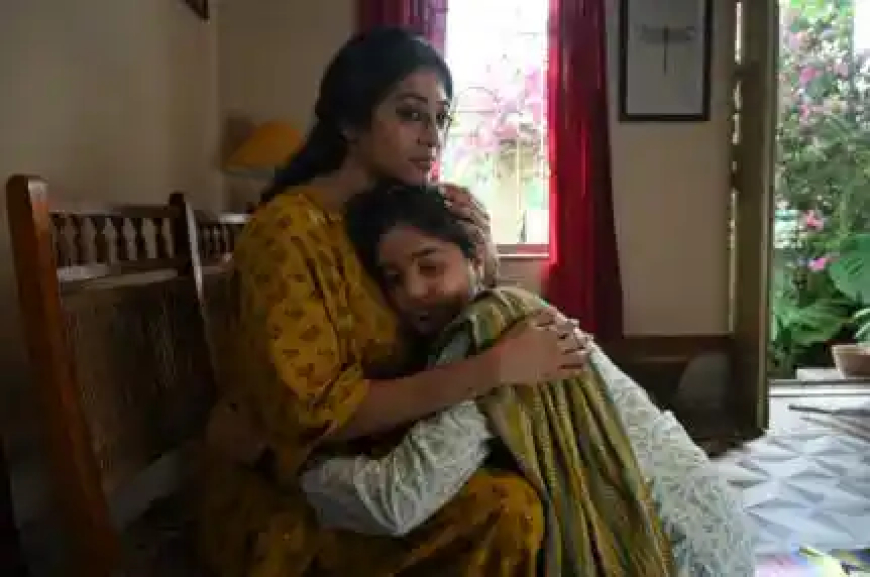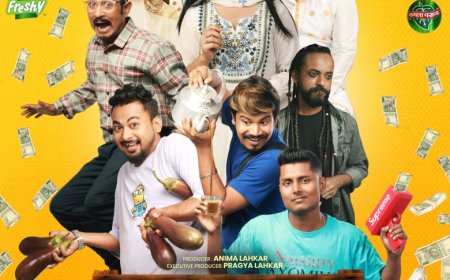Kaberi - A Web Series on Domestic Violence
Dr. Shoma A. Chatterji reviews 'Kaberi,' a web series on domestic violence, highlighting a woman's journey from fear to empowerment amid societal silence and systemic oppression.
One out of three women faces violence behind closed doors, but even a very small intervention can help in overcoming this. Indian society greets the problem of domestic violence with a deafening silence. It is a silence that manufactures myths – that it does not happen among “educated people”; that only drunken men beat up their wives; that men beat wives because they truly love them, etc. This silence encourages attitudes of self-blame, shame and resignation in women who face violence. Behind this silence lurks acceptance – that men have the right to use violence, while women should adjust and endure, an acceptance that is somewhere tacit, somewhere overt.
A new web series on Hoi Choi, the OTT stream owned, controlled and managed by SVF, has recently released a series called Kaberi, named after the protagonist who is a victim of brutal domestic violence at the hands of her husband. She can hardly fight it out with a police complaint because her husband is in the police force himself.
Kaberi Basu (Paoli Dam) takes up the job of a mathematics teacher in a girls’ school in a Kolkata suburb. Actually, taking up a job away from Kolkata is traced back to an extremely violent and abusive husband who beats her black and blue without reason. She cannot hit back because he is a policeman. Even so, she tries to take her complaint to the police but her husband soon arrives and says it was a minor quarrel between husband and wife.
The series opens with Kaberi, a mortally afraid woman, riding in a bus to reach somewhere. But she is so panic-stricken that when she gets off the bus at her scheduled stop, her water bottle slips from her hands. When a young man helps her out and tries to get friendly, Kaberi panics and almost runs away in a toto to her new residence.
Director Souvik Kundu says, “"With Kaberi, I wanted to tell a story of resilience, transformation, and empowerment. Kaberi's journey from a silenced victim to a formidable force fighting against systemic oppression and personal demons is not just inspiring but deeply reflective of the battles many women face every day. This is a tale of unyielding courage, the bonds that heal, and the pursuit of justice, even when the odds seem insurmountable."
At a seminar on Domestic Violence held way back in 2009, the opening statement in the brochure stated, “While Domestic Violence is a universal phenomenon, it uniquely affects those who are married to a member of the uniformed personnel. There are approximately 25 lakh uniformed personnel in service, 80% of which are married. Uniformed personnel usually get married at a very young age, often as soon as they get recruited. The training of the service is aggressive and teaches its members to act without pity, fear or remorse.”
With the passage of the Protection of Women from Domestic Violence Act, for the first time in the history of legal ramifications directly linked to women, the state recognised that violence is not only physical and/or sexual but it can be be psychological, verbal, and economic and act as warning signs of future physical violence. With this in mind, the Protection of Women from Domestic Violence Act, 2005, laid down stringent rules to prosecute men who harass, beat or insult women at home.
The rules, notified on October 25, 2006, classify domestic violence under four categories - physical, sexual, verbal/emotional and economic. Anything remotely resembling abuse by a man of his wife, live-in partner or child, can land him in jail for one year or cost him up to Rs.20, 000 in fines, or risk being booked under sundry sections of the Indian Penal Code. Physical violence includes beating, pushing, shoving, and inflicting pain. Sexual violence covers offences such as forced sex, forced exposure to pornographic material, any sexual act with minors; emotional violence spans insults, jibes for not having a male child, preventing a woman from taking a job, forcing marriage against a woman's will, threat of suicide, preventing a woman from meeting someone etc.; economic violence includes denial of money, food, cloth and medicines, forcing a woman to quit her job, not allowing her to use her partner's salary, not paying rent, and forcing her out.
Kaberi, despite her education and her dignified personality, is so panic stricken that when the naughty girls in the school begin to rag her mercilessly, led by a very ill-mannered teenager named Shampa (Beas Dhar), she tries to control the class but is too panicked to complain to the principal. When the series opens, we find Shampa, a karate champion is fighting with Angela Gomes, her rival in karate but their fighting is more combative than competitive, and Angela falls off the parapet of the corridor on to the compound some floors below and dies. Shampa is arrested but she is convinced that Kaberi Madam will certainly take her out of her troubles. By then, Shampa and Kaberi have evolved a warm relationship. When Anish (Sourav Chakravarty) discovers where Kaberi is hiding, he comes and attacks her again and Shampa is shocked to discover Kaberi’s dilemma. How Kaberi comes out of her problem and Shampa and Kaberi help each other out of their severe problems makes for the rest of this seven-episode series.
The producer and director have assembled a brilliant cast where the actors have done more than justice to their roles. Bidipta Chakraborty portrays Kaberi’s lawyer Paromita with the confidence and body language she is known for, while Sankar Debnath as the evil sports minister Rajeeb Biswas who rules over the school’s athletics, handles his villainish character very well save for the terrible vulgarity and invectives he spouts in every sentence. This should have been avoided. Chandan Sen as the minister’s secretary Amit Munshi, is brilliant as usual while Prantik Banerjee as Kaberi’s journalist friend is a natural. And Paoli Dam in the title role is reserved, dignified, a woman of few words who changes from being a mortally afraid woman to a confident woman who learns the very tricks she has been victimized by to exact her revenge and get back to Life. Beas Dhar as Shampa does very well too.
The series would have turned out to be much better than it now is with too many melodramatic twists than the director and the writer could handle which worked against the series. The main problem is that after a point of time, the entire series shifted from its main agenda of making a statement against domestic violence to become a thriller which took away from it, its main agenda.
The final touch with Kaberi whistling the same tune Anish did while bashing her up brutally, as she walks away from Anish’s cell is outstanding. The best quality of the entire series is its protagonist Kaberi drawing strength from within herself over time than being inspired or encouraged by others to leave panic behind and find power from within herself.
'Protection' is a two-edged weapon. The very fact that this is the principal focus of the Protection of Women from Domestic Violence Act, 2005 Act for women within marriage or out-of-marriage relationships only reinforces the view that women, by and large, are vulnerable to all kinds of violence in their relationships with men. But the Act has not changed the situation much.
*****
What's Your Reaction?



































































